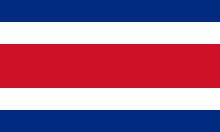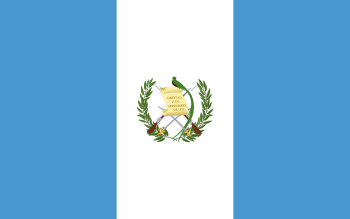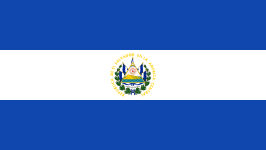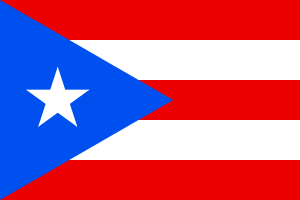C.D. Marathón
 | |||
| Full name | Marathón | ||
|---|---|---|---|
| Nickname(s) |
El Monstruo Verde (the Green Monster) Los Panzas Verdes (the Green Bellies) Verdolagas Esmeraldas (Emeralds) Sinfonía Verde (Green Symphony) | ||
| Founded | 25 November 1925 | ||
| Ground |
Estadio Yankel Rosenthal, San Pedro Sula, Honduras | ||
| Capacity | 15,000 | ||
| Owner | Arturo Bendaña | ||
| Manager | Jairo Rios | ||
| League | Liga Nacional | ||
| 2012–13 Apertura | 4th | ||
|
| |||
Club Deportivo Marathón is a Honduran football club, based in San Pedro Sula, which currently plays in the Liga Nacional de Fútbol Profesional de Honduras.
Marathón holds 50 domestic cup titles, and is one of the most popular clubs in Honduras.
History
Club Deportivo Marathón was founded on 25 November 1925 in San Pedro Sula by Eloy Montes and a group of his friends.[1] Ever since, Marathón has become one of the most prestigious clubs in Honduras, winning multiple titles. The Club Deportivo Marathon has its own sporting venue that has different fields for both first-division team to the bottom and even a tennis cement based foosball lit for night games. The venue has since improved through the years by the support of Friends of the Marathon Group (GAMA) and the different boards that have led to the computer.
First title (1979)
The club would get his first title in their history in 1979. Under orders from Ángel Ramón Rodríguez, Marathon was looking for their first championship in Honduras for the 1979 tournament. With figures like Roberto "Robot" Bailey, Arturo "Pacharaca" Bonilla, Francisco Javier Toledo, Celso Güity, Efraín "Pucho" Osorio, Ramón "Albañil" Osorio, René "Maravilla" Suazo, Jorge Alberto "Cuca" Bueso, Félix Carranza, Jorge Phoyoú (Uruguayan), Alberto Merelles (Argentina), Juan Carlos Wéber (Argentine) and others, the club remained in first place in the regular rounds, having secured their classification to the final.
Second title (1985)
It took six years for Marathon to get a new title. This was achieved in 1983. At that time, Gonzalo Zelaya (who was champion with Sport Club and Social Vida two years earlier) of La Ceiba was the team coach. In the regular season, Marathon was second in their group behind Club Deportivo Olimpia on goal difference. In the final round, Marathon was the champion with 4 wins, 1 draw and only 1 loss to rivals: Life, Motagua and Olimpia. In the deciding match in San Pedro Sula, in the Estadio Francisco Morazán, Marathon faced the Life. With a goal by Roy Padilla Bardales, the emerald table won 1–0 and was crowned for the second time in its history.
Third title (2002)
Marathon had a drought of nearly 17 years without any National League title. However, at the beginning of the new century, the club began having a resurgence. This is due to that, in 2001, the Honduran coach Jose de la Paz Herrera(better known as Chelato Uclés) began a renovation project on campus. Forming a team without much fame, Mr. Uclés led the Marathon again at the top; turning it again into a big team. In his second tournament (Apertura 2001) Marathon, led by Chelato's team went to the final, losing against Motagua on penalties (5–3).However, the great work of Marathon was applauded and recognized by several journalists, hobbyists and technicians in the country its offensive and attractive football. For the Clausura 2002, Marathon finally got what they desired: a championship. Finishing third in the regular rounds with 29 points, Marathon faced in the semifinals to Platense of Puerto Cortés.. In the first leg, Marathon won in San Pedro Sula 2–1 with a brace from Enrique Centeno Reneau; Platense pulled by Clifford Laing. In the first leg, Marathon tied 0–0 at Puerto Cortés and qualified for the final. For this occasion, Marathon faced Olimpia in the final, who defeated Victoria hurriedly in the semifinals. In the first leg played in San Pedro Sula in the Estadio Olimpico Metropolitano, Marathon defeated Olimpia 4–1 with a penalty from Nigel Zuniga, and goals from Enrique Centeno Reneau and Óscar Vargas. The beating caused many to consider Marathon champions of Honduran football again. The then coach of Olimpia, Edwin Pavon, clarified that the end was virtually doomed. In the second leg at Estadio Tiburcio Carias Andino Tegucigalpa, Marathon had great support, almost seven thousand fans club traveled to the Honduran capital to support the team. Even had fans of teams like Motagua and Real Spain that joined the "green" invasion of the capital. Olimpia started winning 1–0 with annotation Gustavo Fuentes 7 minutes. It seemed that the capital team was going to go up. However, Marathon intelligently controlled the game. Finally, they ended up sinking the Olympia in their own field, to his own supporters who turned against their own team. With a smart, driven and practical football, Marathon were crowned champions of Honduras.
Fourth title (2003)
Just after 13 months, Marathon would again win another title. In the Clausura 2003, the "Greens" were directed by the Brazilian Flavio Ortega. Ortega replaced the ArgentineMiguel Angel Lemme, who left in the middle of the tournament. Flavio Ortega purslane lifted the team to finally put it in second place in the regular turns (only surpassed by Olimpia). In the semifinals, Marathon faced Real España . In the first leg both teams tied 1–1; Henry Jimenez pushed Real España 1–0, but Pompilio Cacho tied for the emeralds. In the return game, played at the Olympic Stadium in San Pedro, Real España came back to draw 1–1. Real España returned to win from a goal by Honduran George Fonseca . However, midfielder Narciso Fernández, tied the game for a Marathon Olympic goal. Marathon entered the final for better position in the regular season. Marathon faced Motagua in the final. The motagüenses eliminated Olimpia in the semifinals, giving them even more strength to meet the final. In the final round played at the National Stadium in Tegucigalpa, Marathon surprised to win 1–0 with a goal from Emil Martinez (who was later expelled). With this, the emeralds had a big advantage for the final round. In the return game, Marathon had a huge amount of fans at the Estadio Olímpico (the ticket office was registered in 35,000 fans, the second largest in the history of La Liga Nacional. Motagua would've won with goals from Luis "Tanque" Oseguera in the 39th minute. However, the forward Pompilio Cacho scored the equalizer of Marathon at the end of the first half. In the second half, Marathon were up 2 goals; both scored by Brazilian Denilson Costa. With this, Marathon were champions.
Fifth title (2004)
The team won its fifth title in Apertura 2004. The former club player Nicolás Suazo guided them to win the championship against Olimpia in Estadio Tiburcio Carías Andino. After winning the first game in San Pedro Sula, the verdolagas got the tournament after beating Olimpia in overtime thanks to two goals from Uruguayan Edgardo Simovic
Sixth title (2007)
On 22 December 2007, Marathón won its sixth title in the history of Honduran Liga Nacional. Under the guidance of the Uruguayan coach Manuel Keossian, the club beat Motagua in San Pedro Sula by 2–0 score after a 0–0 draw on the first leg in Tegucigalpa. Mitchel Brown (Honduran) and Erick Scott (Costa Rican) scored the winning goals for the club.
Seventh title (2008)
On 13 December 2008, Marathón won its seventh title in his history on Liga Nacional and the fifth one on the new century. With Manuel Keosseian again as the coach, the club beat Real España in Estadio Olímpico Metropolitano by 1–0 score in the first leg. In the second leg, both teams finished in a 1–1 draw on Estadio Francisco Morazán. Mario Berríos scored the tie gol.
Stadium
Marathon Club is the only team in Honduras to have its own stadium. Estadio Yankel Rosenthal is a multi-purpose stadium located in Colonia La Sabana in San Pedro Sula, Honduras has a capacity of 15,000 fans. The project, which was scheduled to be completed in full for 2007, was postponed to 2009 due to financial problems.
In the near future, Marathón will be the only club in Honduras to own its stadium. All the other stadiums in the league are owned by the city governments.
Club rivalries
Clásico Nacional
El Clásico Nacional (The National Classic) is a Honduran national football derby played between Olimpia, since one team was from Tegucigalpa and Marathón, the other one from San Pedro Sula. When Olimpia won its first national title in September 1928. At that time, Olimpia representing the central zone, won at a final series of three matches to Marathón, champion of the north. Following this end, he created a huge rivalry between these two teams to which he called the National Classic.
Clásico de las M's
El Clásico de las M's (The Classic of the M's) or El Derbi de las M's (The "M" Derby), is a derby football match played between Motagua from Tegucigalpa and Marathón from San Pedro Sula, two of the most successful and popular football teams in Honduras.
Clásico Sampedrano
El Clásico Sampedrano (The Sampedran Derby) is a Honduran football match played at least 4 times a year in the Liga Nacional de Futbol de Honduras by two teams: Marathón and Real España. These two teams are from San Pedro Sula, hence the name.
Nicknames
Marathon has many nicknames including: Sinfonía Verde, Panzas Verdes, Verdolagas, Esmeraldas, Monstruo Verde.
Support
The Club Deportivo Marathon as one of the big four teams in la Liga Nacional de Fútbol Profesional de Honduras being the fourth team to Honduras in terms of number of fans, being beaten by Club Deportivo Olimpia, Club Deportivo Motagua and Real Club Deportivo España.
Ranking mundial de clubes – IFFHS
In 2009, the Club Deportivo Marathon enconto according to the IFFHS (List of the top 350 clubs in the world) as the best and only club Honduras has positioned at 234 in the world with 82.0 points. (Updated to August 30, 2010) as the top club Deportivo La Coruna, Osasuna, Espanyol, River Plate, Racing, Boca Juniors, Club Atlético Peñarol, Cagliari, among others.
Achievements
Domestic
- 1979–80, 1985–86, Clausura 2002, Clausura 2003, Apertura 2004, Apertura 2007, Apertura 2008, Apertura 2009
- Runners-up (12): 1966–67, 1967–68, 1973–74, 1980–81, 1987–88, Apertura 2001, Clausura 2004, Clausura 2005, Apertura 2005, Clausura 2007, Clausura 2008, Clausura 2012.
- Honduran Cup: 1
International
- Third-place (1): 1995
League and playoffs performance
| Season | Position | GP | W | D | L | GF | GA | PTS | Playoffs | Pl. | W | D | L | GS | GA | PTS |
|---|---|---|---|---|---|---|---|---|---|---|---|---|---|---|---|---|
| 1994–95 | 6th | |||||||||||||||
| 1995–96 | 4th | |||||||||||||||
| 1996–97 | 5th | |||||||||||||||
| Apertura 1997 | 4th | |||||||||||||||
| Clausura 1998 | 4th | |||||||||||||||
| 1998–99 | 7th | |||||||||||||||
| Apertura 1999 | 8th | |||||||||||||||
| Clausura 2000 | 5th | |||||||||||||||
| Apertura 2000 | 9th | |||||||||||||||
| Clausura 2001 | ||||||||||||||||
| Apertura 2001 | ||||||||||||||||
| Clausura 2002 | ||||||||||||||||
| Apertura 2002 | ||||||||||||||||
| Clausura 2003 | ||||||||||||||||
| Apertura 2003 | 4th | |||||||||||||||
| Clausura 2004 | ||||||||||||||||
| Apertura 2004 | ||||||||||||||||
| Clausura 2005 | ||||||||||||||||
| Apertura 2005 | ||||||||||||||||
| Clausura 2006 | 9th | Did Not Qualify | ||||||||||||||
| Apertura 2006 | 4th | |||||||||||||||
| Clausura 2007 | ||||||||||||||||
| Apertura 2007 | ||||||||||||||||
| Clausura 2008 | ||||||||||||||||
| Apertura 2008 | ||||||||||||||||
| Clausura 2009 | ||||||||||||||||
| Apertura 2009 | ||||||||||||||||
| Clausura 2010 | 7th | Did Not Qualify | ||||||||||||||
| Apertura 2010 | ||||||||||||||||
| Clausura 2011 | 4th | |||||||||||||||
| Apertura 2011 | ||||||||||||||||
| Clausura 2012 | ||||||||||||||||
| Apertura 2012 | 4th | |||||||||||||||
| Clausura 2013 | 4th |
Other facts
- Marathon in the 1960s and 1970s was known as the "foreign team executioner". This was because at this time, Honduran teams were often swept by foreign team, unlike Marathon (and Olimpia). The most significant triumphs of the greens at the time were: in 1966 the thrashing of
 Deportivo Saprissa 4–0 in the Estadio Francisco Morazán, victory over
Deportivo Saprissa 4–0 in the Estadio Francisco Morazán, victory over  Pachuca of Mexico 2–1 also in Estadio Francisco Morazán in 1967, victory against
Pachuca of Mexico 2–1 also in Estadio Francisco Morazán in 1967, victory against  Sporting Cristal 2–1 again in the Estadio Francisco Morazán in 1971.
Sporting Cristal 2–1 again in the Estadio Francisco Morazán in 1971. - Marathon was the first Honduran team to beat a Mexican club at home turf in an official match. In 1981, they defeated
 Cruz Azul in Mexico 3–1 at Estadio Azteca.
Cruz Azul in Mexico 3–1 at Estadio Azteca. - The first game Marathon held against a South American teams in 1968 and their opponent was
 Cúcuta Deportivo of Colombia, whom they defeated 3–0 in the Estadio Francisco Morazán. The last encounter against a South American team was in 2002 they defeated
Cúcuta Deportivo of Colombia, whom they defeated 3–0 in the Estadio Francisco Morazán. The last encounter against a South American team was in 2002 they defeated  River Plate of Argentina 3–1 in the Estadio Olímpico Metropolitano.
River Plate of Argentina 3–1 in the Estadio Olímpico Metropolitano. - The first game against a Mexican team was in 1967, when they were crushed by
 Irapuato 6–3 in the Estadio Francisco Morazán.
Irapuato 6–3 in the Estadio Francisco Morazán. - Marathon's top scorer so far is Gilberto Leonel Machado with 78 goals.[2]
- The biggest official win was in 1976 when they won 7–0 at Campamento
- The biggest defeat was received from
 Toluca in 2009 when they lost 7–0 in Concachampions at Nemesio Díez.
Toluca in 2009 when they lost 7–0 in Concachampions at Nemesio Díez. - Marathon held a game and drew 1–1 against
 Santos of Brazil in 1969, note that Pelé was lined-up the second half.
Santos of Brazil in 1969, note that Pelé was lined-up the second half. - Marathon has played 15 finals up to 2012–13 C
- Out of the 15 finals Marathon has played, 12 were in the past century. They have won 6 and lost 6:
- Eight against Olimpia (3 wins, 5 lose).
- Three against Motagua (2 wins, 1 lose).
- Three against Real España (1 win, 2 lose).
- One against Broncos (1 win).
League and performance
All-time table
(From 1965–66 to 2009–10)
| Seasons | Points | Played | Won | Drawn | Lost | For | Against | Difference |
|---|---|---|---|---|---|---|---|---|
| 55 | 2048 | 1412 | 523 | 479 | 412 | 1791 | 1491 | +300 |
36 game average Torneo Apertura y Clausura 2007/08
| Points | Won | Drawn | Lost | For | Against | Difference |
|---|---|---|---|---|---|---|
| 72 | 21 | 09 | 06 | 54 | 26 | 28 |
International competition
CONCACAF Champions' Cup
- First Round v.
 CSD Municipal – 0:1, 0:3 (Municipal advanced 4:0 on aggregate)
CSD Municipal – 0:1, 0:3 (Municipal advanced 4:0 on aggregate)
- First Round v.
- First Round v.
 CS Herediano – 3:0, 1:3 (Marathón advanced 4:3 on aggregate)
CS Herediano – 3:0, 1:3 (Marathón advanced 4:3 on aggregate) - First Round v.
 CSD Comunicaciones – 1:1, 4:0 (Marathón advanced 5:1 on aggregate but withdrew after series)
CSD Comunicaciones – 1:1, 4:0 (Marathón advanced 5:1 on aggregate but withdrew after series)
- First Round v.
- First Round v.
 C.D Santiagueño – 4:0, 1:1 (Marathón advanced 5:1 on aggregate)
C.D Santiagueño – 4:0, 1:1 (Marathón advanced 5:1 on aggregate) - Second Round v.
 Cruz Azul – 3:1, 1:1 (Marathón advanced 4:1 on aggregate)
Cruz Azul – 3:1, 1:1 (Marathón advanced 4:1 on aggregate) - Third Round v.
 C.D. Atlético Marte – (Marathón withdrew)
C.D. Atlético Marte – (Marathón withdrew)
- First Round v.
- First Round v.
 Alianza F.C. – 0:1, 3:2 (Alianza advanced 4:2 on penalties)
Alianza F.C. – 0:1, 3:2 (Alianza advanced 4:2 on penalties)
- First Round v.
- Group C v.
 CSD Municipal – 2:0
CSD Municipal – 2:0 - Group C v.
 C.D. Águila – 1:0
C.D. Águila – 1:0 - Group C v.
 LD Alajuelense – 0:1
LD Alajuelense – 0:1 - Third Round v.
 LD Alajuelense – 0:2
LD Alajuelense – 0:2 - Third Round v.
 Aurora FC – 2:1
Aurora FC – 2:1 - Third Round v.
 CD Olimpia – 1:2
CD Olimpia – 1:2
- Group C v.
- Preliminary round v.
 A.D. Isidro Metapán – 2:2, 1:2 (Marathón advanced 4:3 on aggregate)
A.D. Isidro Metapán – 2:2, 1:2 (Marathón advanced 4:3 on aggregate) - Group A v.
 Cruz Azul – 2:0, 1:1 (Marathón advanced 3:1 on aggregate)
Cruz Azul – 2:0, 1:1 (Marathón advanced 3:1 on aggregate) - Group A v.
 D.C. United – 2:0, 2:4 (Marathón advanced 6:2 on aggregate)
D.C. United – 2:0, 2:4 (Marathón advanced 6:2 on aggregate) - Group A v.
 Saprissa – 2:1, 2:0 (Marathón advanced 3:2 on aggregate)
Saprissa – 2:1, 2:0 (Marathón advanced 3:2 on aggregate) - Quarterfinals v.
 Puerto Rico Islanders – 2:1, 1:0 (Islanders advanced 3:1 on aggregate)
Puerto Rico Islanders – 2:1, 1:0 (Islanders advanced 3:1 on aggregate)
- Preliminary round v.
- Group B v.
 D.C. United – 3:1, 3:0
D.C. United – 3:1, 3:0 - Group B v.
 San Juan Jabloteh – 3:1, 2:4
San Juan Jabloteh – 3:1, 2:4 - Group B v.
 Deportivo Toluca F.C. – 0:7, 2:0
Deportivo Toluca F.C. – 0:7, 2:0 - Quarterfinals v.
 UNAM – 2:0, 1:6 (UNAM advanced 6:3 on aggregate)
UNAM – 2:0, 1:6 (UNAM advanced 6:3 on aggregate)
- Group B v.
Torneo Fraternidad
- 1980 Torneo Fraternidad
- First Round v.
 C.D. FAS – 1:2, 0:8 (FAS advanced 10:1 on aggregate)
C.D. FAS – 1:2, 0:8 (FAS advanced 10:1 on aggregate)
- First Round v.
- 1981 Torneo Fraternidad
- First Round v.
 C.D. Águila – 2:1, 5:0 (Marathón advanced 7:1 on aggregate)
C.D. Águila – 2:1, 5:0 (Marathón advanced 7:1 on aggregate)
- First Round v.
- 1982 Torneo Fraternidad
- First Round v.
 Xelajú MC – 0:2, 1:1 (Xelajú MC advanced 3:1 on aggregate)
Xelajú MC – 0:2, 1:1 (Xelajú MC advanced 3:1 on aggregate)
- First Round v.
Copa Interclubes UNCAF
- Group C v.
 LD Alajuelense – 1:2
LD Alajuelense – 1:2 - Group C v.
 CD Motagua – 1:2
CD Motagua – 1:2 - Group C v.
 Tauro F.C. – 4:0
Tauro F.C. – 4:0
- Group C v.
- Group 3 v.
 San Francisco F.C. – 5:0
San Francisco F.C. – 5:0 - Group 3 v.
 CD Olimpia – 0:0
CD Olimpia – 0:0 - Group 3 v.
 LD Alajuelense – 0:0
LD Alajuelense – 0:0
- Group 3 v.
- First Round v.
 Parmalat FC – 3:0 (Parmalat withdrew)
Parmalat FC – 3:0 (Parmalat withdrew) - Quarter-finals v.
 Deportivo Saprissa – 0:4, 4:0 (Saprissa advanced 5:4 on penalties)
Deportivo Saprissa – 0:4, 4:0 (Saprissa advanced 5:4 on penalties)
- First Round v.
- First Round v.
 C.D. Águila – 2:0, 1:1 (Marathón advanced 3:1 on aggregate)
C.D. Águila – 2:0, 1:1 (Marathón advanced 3:1 on aggregate) - Quarter-finals v.
 Deportivo Marquense – 1:1, 0:1 (Marquense advanced 2:1 on aggregate)
Deportivo Marquense – 1:1, 0:1 (Marquense advanced 2:1 on aggregate)
- First Round v.
Records
All time top scorers(As of 20 April 2013)
All time appearances(As of 20 April 2013)
|
Marathón's logos
Since 1925, Marathón uses an specific logo for the institution.
-

1925-
Uniforms
The historic colors for the club are green and red, in some cases, white. More recently it has promoted black. The uniform of the team has been sponsored by Joma.
Kit evolution
|
Historic |
1979 |
1985 |
2002 |
2003 |
2004 |
Current squad
Apertura 2014
Note: Flags indicate national team as defined under FIFA eligibility rules. Players may hold more than one non-FIFA nationality.
|
|
Reserve squad
Note: Flags indicate national team as defined under FIFA eligibility rules. Players may hold more than one non-FIFA nationality.
|
Former coaches
|
|
|
References
- ↑ "Monstruo sediento" (in Spanish). Diario La Prensa. 10 August 2007. Archived from the original on 28 September 2007. Retrieved 2007-08-11.
- ↑ “No creí que mi récord durara tanto”: Machado – La Prensa (Spanish)
- ↑ Desafíe a Ismael – La Prensa (Spanish)
- ↑ Desafíe a Ismael – La Prensa (Spanish)
External links
| ||||||
| ||||||||||||||||||||||||||||||||||||||||
| ||||||
| ||||||||||||||||||||||||||
| ||||||||||||||||||||||||||||||
| ||||||||||||||||||||||||||||||
